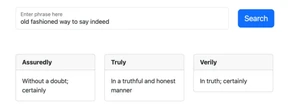To-do lists, time-blocking, and Pomodoro sprints are all great techniques for getting things done. The best productivity tool, however, may be staring back at you in the mirror. It’s cultivating a sense of self-reliance, and it’s a powerful method for moving forward, says Maha Abouelenein, author of 7 Rules of Self-Reliance: How to Stay Low, Keep Moving, Invest in Yourself, and Own Your Future.
“Self-reliance is a superpower,” Abouelenein explains. “It’s about giving yourself the tools and the skills to succeed in your personal life and your professional life. For example, I rely on myself to educate myself. I rely on myself to create the right opportunities. It’s making yourself valuable and resourceful so that you can bring value to others.”
Self-reliance, however, isn’t always our default system. Most of us tend to expect things from others, Abouelenein says. For instance, you might expect your employer to make decisions that are in your best interest or to define your pathway to growth.
“Give yourself a competitive advantage by relying on yourself instead of expecting people to do things for you,” says Abouelenein. “Take the driver’s seat and push yourself forward to create value.”
Here’s how you can become more self-reliant to get more done:
Stay Low and Keep Moving
One of Abouelenein’s rules of self-reliance is “stay low and keep moving.” This philosophy helps you better manage your time.
“If you’re sitting in front of your inbox all day just fielding incoming emails, those are priorities that are important to other people,” she says. “They interrupt and disrupt your day.”
Distractions are a normal part of work and in life. When you become more self-reliant, though, you understand the importance of ruthlessly setting your own priorities and focusing on your goals. You understand that if you constantly bend to everyone else’s wishes, you do so at the expense of your own.
“Keep your head down and put on blinders to work hard and put in effort,” says Abouelenein. “There will be setbacks. Keep moving through them so that your productivity can be focused on the big goals that you want to achieve.”
Move from ‘Waiter’ to ‘Creator’
Early in her career, someone told Abouelenein that she was a “waiter,” meaning she was too reliant on others. It opened her eyes on what it takes to build your dream life.
“I was assuming people would see my work, my value, and my worth and good opportunities would just land in my lap,” she says. “I discovered very quickly that you can either be a waiter—waiting for people to invest in you, promote you, and put your career in overdrive—or you can be a creator, creating opportunities by building great relationships, getting access to information, building your personal brand, and learning to add value for others.”
Instead of waiting for others to bring you what you want, Abouelenein recommends being proactive and taking initiative. Rely on yourself instead of others when it comes to what’s important. And don’t be afraid to take charge, make decisions, and share your accomplishments.
Understand Your Gaps
Self-reliance isn’t about going it alone all the time. It’s also having self-awareness of the things you’re good at and the gaps you need to fill, says Abouelenein. This isn’t about expecting others to do things for you. It’s about mutually beneficial relationships with other value creators.
“Self-reliant people come to the table having skills, having knowledge, and having something to offer a value,” she explains. “You have to rely on other people to help with gaps because nobody gets anywhere alone.”
When building relationships, focus on the long-term. Instead of thinking in transactions, such as “I will do this for you, so you will do that for me,” add value first, leading with goodwill and good intentions.
“Do goodwill and good intention first,” says Abouelenein. “Add value first and see how that plays out. Bring value to multiple parties, because that’s good for your reputation. It’s good for your relationships, and it might be a long-term move to get you future business opportunities with one or both of those parties.”
Learn, Unlearn, Relearn
Finally, being self-reliant means being a lifelong learner. “What do you need to unlearn that’s no longer serving you?” asks Abouelenein. “What do you need to relearn? What do you need to do to invest in yourself? It’s not up to your employer to make you smarter and stronger. It’s up to you.”
For example, Abouelenein suggests attending events, learning from others through mentoring or formal education, listening to podcasts, and reading books. When you seek new information and are willing to change yourself and your way of working, the world becomes a place of opportunities instead of obstacles.
“Times are changing,” says Abouelenein. “Make sure that you’re up to speed to stay relevant. Investing in yourself will lead to more happiness, new ideas, and a greater sense of purpose and power.”
When you become self-reliant, you’ll have the attitude you need to stick to your plan, maintain relentless focus, and move forward faster. You’ll prioritize action and stop wasting time on things that don’t matter.








No comments